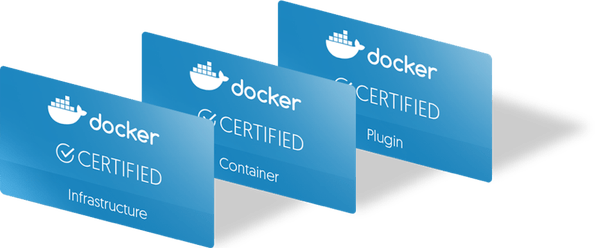Docker Monitoring Tools

Tools for monitoring Docker; Amazon CloudWatch is the built-in monitoring solution for AWS. ECS submits metrics to CloudWatch, and CloudWatch makes these metrics available for analytics, visualization, alerting, and Auto Scaling.
Docker monitoring tools. Theses tools play various roles in your process of creating applications, containerizing them, and deploying them in distributed clusters. We hope this list of Docker tools will help make your work more efficient, faster and simpler. If we missed your favorite Docker tool, let us know in the comments below! Docker Desktop allows you to leverage certified images and templates and your choice of languages and tools. Development workflows leverage Docker Hub to extend your development environment to a secure repository for rapid auto-building, continuous integration and secure collaboration. The best Docker container monitoring tools 1. SolarWinds Server & Application Monitor (FREE TRIAL) SolarWinds Server & Application Monitor (SAM) comes in at the top spot for Docker container monitoring due to its ease of use, scalability, and visual alerting features. No matter how many Docker containers you need to keep an eye on, Application. The Next-Gen Monitoring Solution for Your Docker Ecosystem eG Enterprise is an enterprise-class, converged application and IT monitoring solution that provides unified performance visibility into Docker containers and the applications and databases running on them.
Tools like SolarWinds Server & Application Monitor, Datadog, and Sematex are all excellent for monitoring Docker. SolarWinds Server & Application Monitor offers a simple monitoring experience with high-quality graphs, Datadog excels at providing you with a single pane of glass perspective of your containerized environment, and Sematex is great. Agentless Application Performance Monitoring Docker Stats. This is a monitoring utility built into the Docker Engine and client. It is invoked via the dockercommand-line client with docker stats and has no other user interface than what is. Docker monitoring tools can also contextualize container performance in relation to other performance metrics, for instance, host performance, application uptime, and server speeds. This way, users can identify problems and troubleshoot them quickly.
Due to its popularity, monitoring docker containers sometimes boils down to a problem of choice, as there exist a variety of tools from which to choose from, each of them having their pros and cons. In many cases, MetricFire is a great option for monitoring your docker containers. Docker container monitoring is becoming an increasingly important challenge for developers as adoption of container-driven architecture grows. Docker, founded in 2013 as a Linux developer tool, is a software container platform that solves the age-old “works on my machine” problem. New generation monitoring tools, both open source and licensed, support Docker monitoring out of the box. The challenges in rolling out a good Docker monitoring system remain the same as with any generic monitoring systems: Selecting a set of tools that are most suitable from a wide range of product offerings Top Six Open Source Tools for Monitoring Kubernetes and Docker. By Ran Ribenzaft on March 9, 2020 9 Comments. Kubernetes and Docker are two of the most commonly heard buzzwords in modern DevOps conversations. Docker is a tool that enables you to containerize and run your applications, and Kubernetes provides you with a platform to orchestrate.
Docker Stats. I will start with Docker’s own API as many of the other tools available and featured build upon the data it provides and add information from other sources. A simple docker stats command will provide you with an overview of containers and their CPU, memory and I/O usage. Most Docker host monitoring tools evaluate basic metrics, such as CPU usage, memory, networking information, and disk utilization for a running Docker container; however, a comprehensive Docker container monitoring tool like Applications Manager's Docker performance monitor goes a step further, providing details about all containers present in. Top Monitoring and Optimization Tools for Docker By dnsstuff on November 5, 2019. Docker is a multipurpose tool that can replicate many functions of a virtual machine with less of the hassle. Because Docker operates using virtual software packages (called “containers”) running from the same software kernel, Docker can help you reduce. But moving into Docker provides an opportunity for much better security: Docker image scanning to detect known vulnerabilities, runtime security to identify and block threats on production, network security, compliance, audit and forensics are some of the areas where you can improve your security with the following Docker security tools.
Docker monitoring tools can also contextualize container performance in relation to other performance metrics, for instance, host performance, application uptime, and server speeds. This way, users can identify problems and troubleshoot them quickly. Below are some Docker monitoring tools that you can choose for your environment depending upon your needs. Docker Stat. Every Docker container shipped with a pre-configured monitoring tool which is Docker Stat. Following command gives statistics of docker CPU utilization, memory usage, memory limit, and network IO metrics. All these features lead us to the conclusion that Datadog is a real powerful cloud tool, that has shown significant improvement to all the monitoring tools mentioned above, with a very user-friendly design, a rich set of supported tools and systems (docker and non-docker resources), and it’s easy to use. On Docker, for example, docker stats returns a fair amount critical data about the containers. And some tools specifically monitor containers. CAdvisor shows essential container properties graphically on a real-time monitoring dashboard, but without any option to go back and track what has happened in the past. For monitoring trend analysis.
The next approach for docker container monitoring is Scout and it addresses several of limitations of CAdvisor. Scout is a hosted monitoring service which can aggregate metrics from many hosts and containers and present the data over longer time-scales. It can also create alerts based on those metrics.






![[Lab 39] Monitoring Tools Setup Prometheus and Grafana](https://i.pinimg.com/originals/8b/ce/f0/8bcef02200b0b7a93d81abedad4302b5.png)













